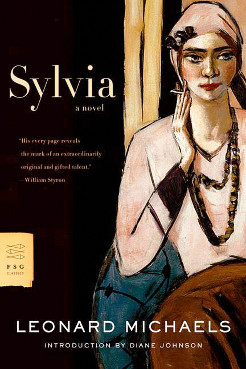In 1960, after two years of graduate school at Berkeley, I returned to New York without a Ph.D. or any idea what I’d do, only a desire to write stories. I’d also been to graduate school at the University of Michigan, from 1953 to 1956. All in all, five years of classes in literature. I don’t know how else I might have spent those five years, but I didn’t want to hear more lectures, study for more exams, or see myself growing old in the library. There was an advertisement in the school paper for someone to take a car from Berkeley to New York, expenses paid. I made a phone call. A few days later, I was driving a Cadillac convertible through mountains and prairies, going back home, an over-specialized man, twenty-seven ears old, who smoked cigarettes and could give no better account of himself than to say “I love to read.” It doesn’t qualify the essential picture, but I had a lot of friends, got along with my parents, and women liked me. Speeding toward the great city in a big, smooth-flowing car that wasn’t mine, I felt humored by the world.
My parents’ apartment on the Lower East Side of Manhattan, four rooms and a balcony, was too small for another adult, but I wouldn’t be staying long. Anyhow, my mother let me feel like a child. It seemed natural. “What are you doing?” she said. “Washing dishes? Please, please, go away. Sit down. Have a cup of coffee.”
My father sighed, shook his head, lit a cigar. Saying nothing, he told me that I hadn’t done much to make him happy.
From their balcony, fourteen stories high, I looked down into Seward Park. Women sat along the benches, chatting. Their children played in the sandbox. Basketball and stick-ball games, on courts nearby, were in process morning and afternoon. On Sundays, a flea market would be rapidly set up in a corner of the park—cheap, bright, ugly clothing strewn along the benches. In the bushes, you could talk to a man about hot cameras and TV sets. At night, beneath the lush canopy of sycamores and oaks, prostitutes brought customers. Beyond the park, looking north, I saw Delancey Street, the mouth of the Williamsburg Bridge eating and disgorging traffic. Further north were the Empire State Building and the Chrysler Building. Ever since I was a little kid, I’d thought of them as two very important city people. A few degrees to the right, I saw the complicated steelwork of the 59th Street Bridge. To the west, beyond Chinatown (where Arlene Ng, age ten, my first great love, once lived) and beyond Little Italy (where they shot Joey Gallo in Umberto’s Clam House on Mulberry Street), loomed Wall Street’s financial buildings and the Manhattan Bridge. Trucks, cars, and trains flashed through the grid of cables, crossing the East River to and from Brooklyn. Freighters progressed slowly, as if in a dream, to and from the ocean. In the sky, squadrons of pigeons made grand loops, and soaring gulls made line drawings. There were also streaking sparrows, and airplanes heading toward India and Brazil. All day and night, from every direction, came the hum of the tremendum.
